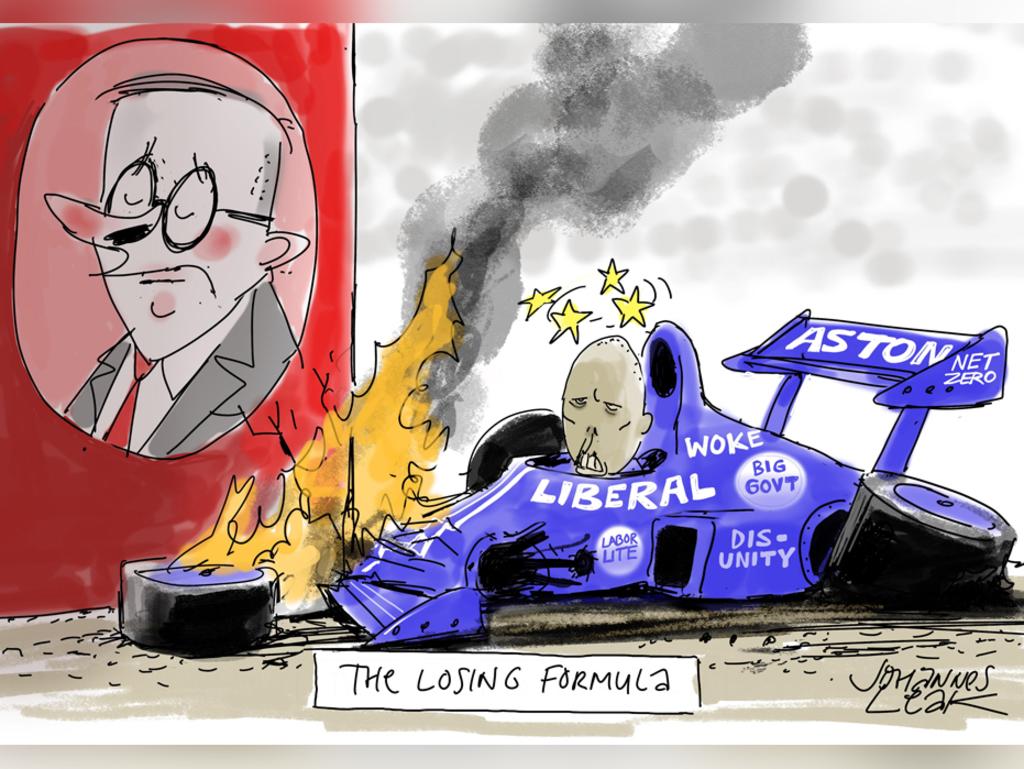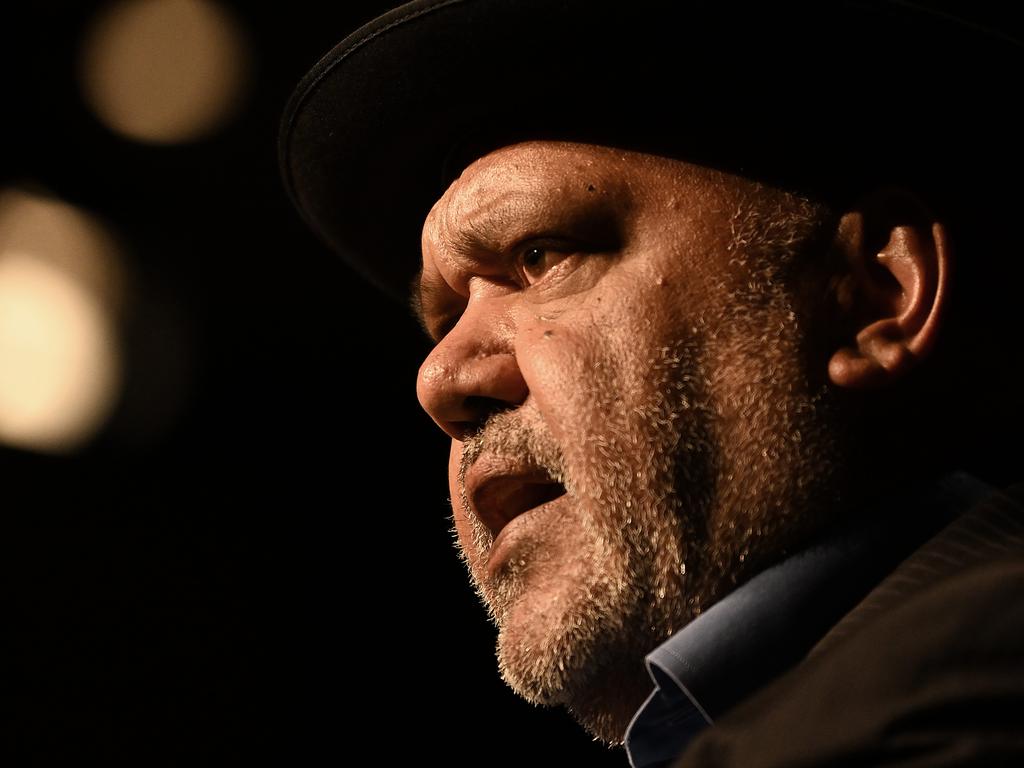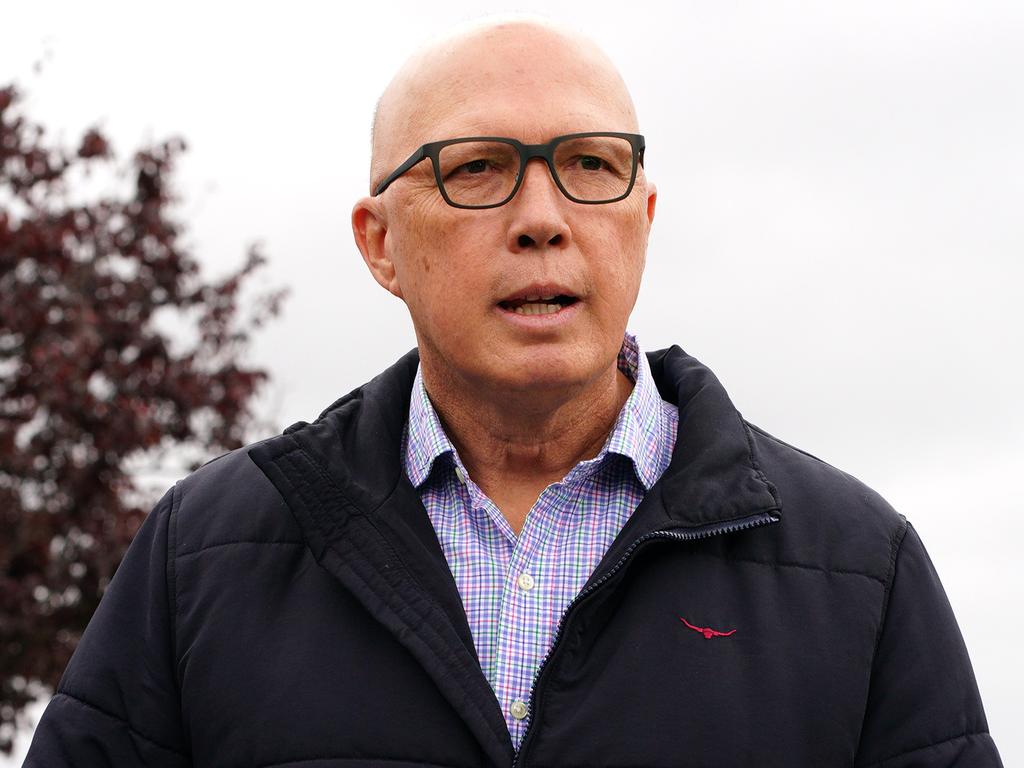Libs may be down but they’re not out


Yet the Liberals have been down before without ever being quite out: in 1983, with Labor in power everywhere except Queensland and Tasmania; and in 2008, when the lord mayor of Brisbane was for a time the most senior elected Liberal anywhere in the country. Yet the Liberal Party came roaring back to be in office federally and in most states after 1996 and again, with a landslide, after 2013.

It’s a truism of politics that oppositions don’t win elections, governments lose them. If the Albanese government is presiding over an energy crisis, housing pain and a stagnant economy in two years, Peter Dutton could well become prime minister, provided the Liberals can offer a clear and credible alternative.
It was always going to be hard for the Liberals to win in NSW seeking a fourth term, on to their fourth premier and without a distinct agenda other than Labor-lite compromises. In any event it was hardly a Labor landslide, even though compulsory preferential voting likely would have allowed Labor to govern in its own right.
And the Aston defeat shouldn’t have been a shock. Labor’s sophisticated social media attack ads skilfully portrayed the Liberal candidate as the “blow-in barrister from Brunswick” in a parochial outer-suburban electorate suspicious of silvertails. The difference between the Aston primary vote and the Liberals’ Senate vote in the same seat suggested the retiring member’s personal vote was a whopping 10 per cent in 2019 and still 5 per cent last year despite scandals. Plus the Liberals had no new policy directed at Aston; lots of “fighting for” promises but not one funded commitment. In a seat with a strong religious vote, too, the messy bid by Victorian state Liberals to expel an MP for attending a women’s rights rally was another own goal.
Historically, it has been the Liberal Party organisation that has been responsible for picking candidates and running campaigns, while the parliamentary party has been responsible for policy. The parliamentary leadership’s chronic interference in candidate selection has been a key factor in the party’s recent woes.

This stands in sharp contrast to the Nationals, who have not disenfranchised grassroots members in choosing candidates and managed to hang on to their seats. In Victoria, for instance, at the otherwise disastrous state election last November, the Nationals recorded their best result since 1943.
Another big issue for the Liberals has been the ingrained tendency of party insiders to put protecting their personal fiefdoms ahead of maximising membership and picking candidates on merit. And that’s before considering the cancer of factional bosses turned lobbyists, monetising their hold over ministers whose preselections they can influence.
Although the Victorian state executive parachuted into Aston a talented, hardworking candidate, the denial – yet again – of a local membership ballot meant local Liberals were largely on strike. After federal preselections in NSW had been artificially delayed so long that candidates in must-win seats were picked by the prime minister’s office with just days to go, the NSW premier vowed “never again” – only for similar factional wrangles to hold up preselections until the last minute.
To win elections, the Liberal Party has to take its members seriously and it has to stand for something. And if the local members can’t be trusted to preselect electable candidates, more members who better reflect their local electorates need to be recruited. But this won’t necessarily produce the more philosophically fluid rank and file that many Liberal insiders seem to want. After all, who joins the Liberal Party to be left-wing?
The biggest challenge for the Liberal Party is being a clear alternative to Labor. At last year’s federal election, on issues such as net zero and integrity in government, the Liberals were just a slight variation on Labor.
The last time the Liberals won big anywhere in Australia was in 2013 under Tony Abbott and he was hardly promising to be more politically correct than Labor. On national security, climate and energy, tax and budget management, Abbott was a clear alternative and wasn’t shy of a fight. That’s what has been largely lacking ever since.

Malcolm Turnbull’s insipid and content-less “jobs and growth” platform lost 14 seats in 2016 and he survived, perversely, only thanks toAbbott’s landslide majority. Scott Morrison had his 2019 “miracle win” campaigning against Labor’s new taxes on retirees and its climate extremism, only to ebb out of office three years later as Labor-lite.
Now, Dutton has to decide whether he’s a leader or just a critic. So far, he largely has confined himself to attacking the government for its broken promises rather than putting forward policies of his own. That’s understandable this early in the government’s term but it can’t last, especially now that the government’s insistence on a race-based national Indigenous voice that would amount to a parallel government has forced Dutton to take a stand.

It wasn’t quite the unambiguous No to giving some Australians extra rights based on their ancestry that many Liberal supporters expected. In fact it was a Yes to regional and local voices (even though that, too, offends against the principle of equal rights regardless of race). But it was a clear decision by the whole of the partyroom (five dissenters aside) to oppose Labor’s national voice rather than what was feared, a weaker free voter outcome. What’s more, Dutton committed to campaigning actively against the biggest change to our Constitution and system of government ever proposed. And unless they resign, that means his frontbench too.
Some Liberals, especially those in teal-ish seats, will still fret about the Prime Minister’s frequent insinuations that to vote No is to disrespect Indigenous people. But rather than give up in the face of Wednesday’s Newspoll showing 54 per cent support for the voice and 38 per cent opposition to it, especially without the Liberals making a fight of it until now, they should remember the almost identical Newspoll support for becoming a republic (51 per cent in favour, 35 against) less than three months before the 1999 referendum that republicans lost 55-45.
Sure, since then, there have been two decades of leftist brainwashing in schools and the advent of woke capitalism, but there can still be a majority for centre-right political positions provided Liberal leaders are prepared to stand tall and argue a case.






The soul searching the Liberal Party was plunged into last week with the loss of the NSW election has only deepened this week with the loss of the Aston by-election last Saturday. With the party out of power in all the mainland states, and the first federal opposition to lose a by-election in a century, inevitably there have been some suggestions of an existential crisis.